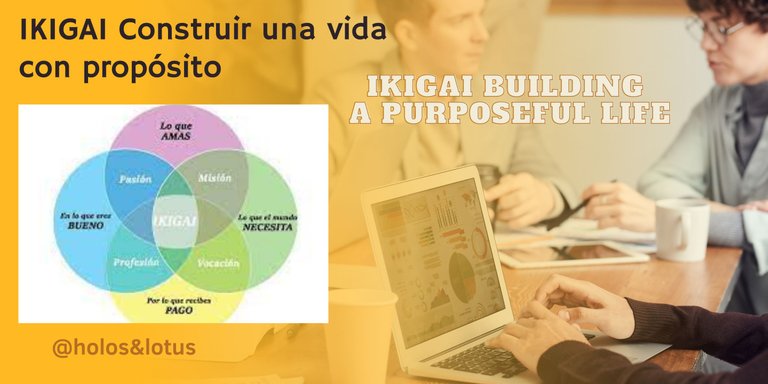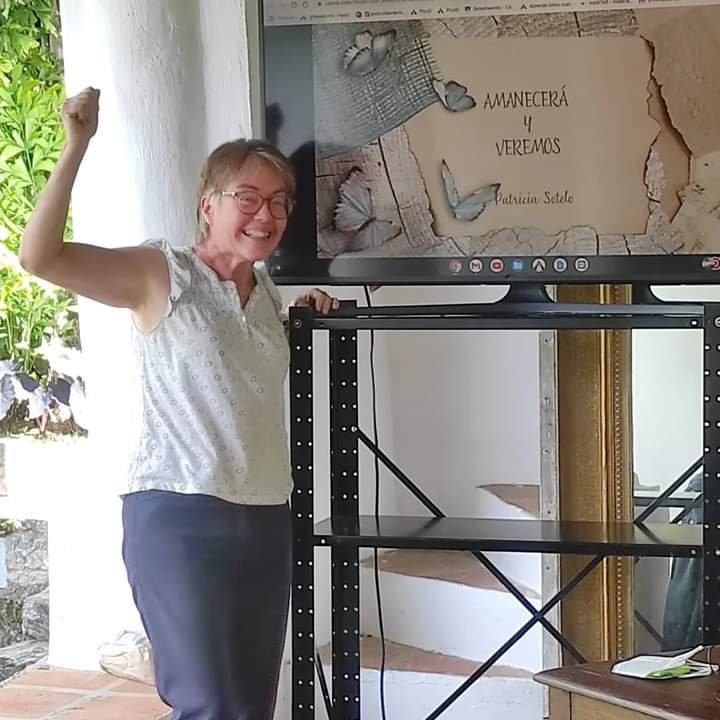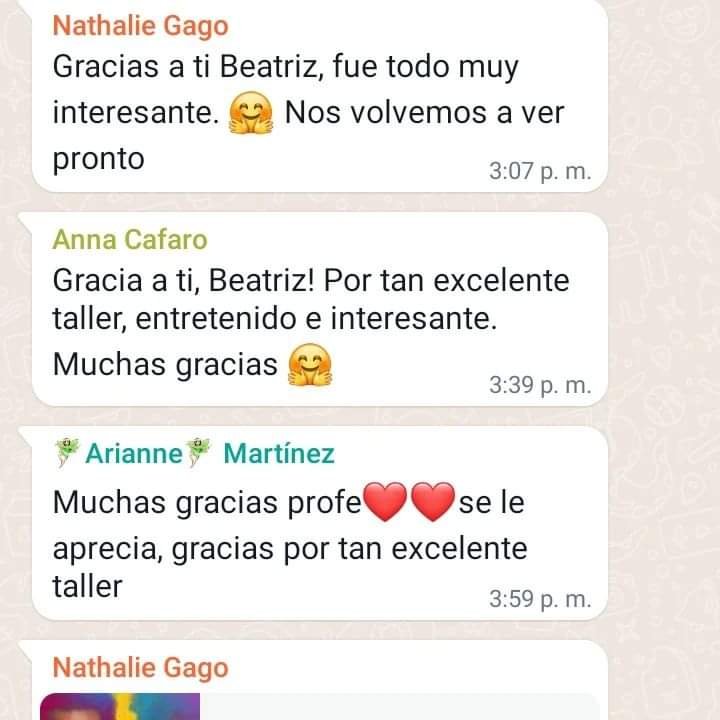IKIGAI: CONSTRUIR UNA VIDA CON PROPÓSITO/IKIGAI: BUILDING A PURPOSEFUL LIFE (SPA-ENG)

Desde hace algunos meses he estado escuchando la palabra de origen japonés “Ikigai”, vinculada con “encontrar tu propósito en la vida”, pero hace pocos días, en un taller con el periodista Ismael Cala, entendí que el “ikigai” tiene que ver no sólo con tu propósito en la vida, que es importante; sino también con tu capacidad de alinear tu propósito, con lo que te gusta; con lo que sabes hacer; con aquello de lo que tienes conocimiento. Pero además, y no menos importante, que ese propósito, ese servicio que ofreces, sea algo que necesitan las personas que te rodean y las personas en el mundo, porque ya hoy, con las conexiones digitales, puedes ofrecer tus servicios a cualquier persona que tenga conexión a internet.
En el caso de que dirijas una empresa o una institución el impacto de lo que haces tiene un mayor alcance, te beneficia a ti y a tus seres queridos, pero también a quienes trabajan para ti y a tus clientes. La capacidad de beneficiar a otros a través de tu empresa lo han llamado “responsabilidad social”. En un mundo en transformación, con graves crisis, donde millones de personas no tienen sus necesidades básicas cubiertas, el impacto de la responsabilidad social es muy importante.
Vamos a profundizar con un poco más de detenimiento los ejes que conforman el ikigai.

Encontrar tu propósito
Cuando somos muy jóvenes no siempre tenemos claro qué queremos hacer en la vida, cuál va a ser nuestra profesión, pero sin duda hay actividades que disfrutas especialmente y otras para las que desde la infancia tienes habilidades evidentes. Yo, por ejemplo, fui buena lectora desde niña y tuve siempre curiosidad por entender el mundo que me rodeaba, pero no fui buena con las matemáticas, los números, y tampoco tuve habilidad para el trabajo manual, para hacer cosas con las manos.

Lo ideal es que tu propósito, aquello en lo que te vas a desempeñar, esté vinculado con tu vocación, aquello que te gusta y haces bien, que luego estudias y se convierte en tu profesión. No debe ser algo que te impongan desde afuera, como infelizmente hacen algunos padres. O algo que no te gusta, pero te quedas haciendo por necesidad, “porque hay que pagar las cuentas”. Eso lo puedes hacer durante un tiempo, pero no para siempre. Una actividad que sólo haces por necesidad no es tu propósito, porque no lo disfrutas, no te hace feliz hacerlo, no puede ser tu ikigai. Nunca.
Por otra parte, tu propósito, tu ikigai, no es algo tallado en piedra. Conozco un destacado escritor venezolano, Federico Vegas, que estudió arquitectura y durante muchos años trabajó como arquitecto, disfrutó ese trabajo, pero también le gustaba leer, escribir, y cuando ya tenía más de cuarenta años empezó a escribir y publicar literatura, cuentos y novelas. Nuestro propósito, nuestro ikigai, puede cambiar.
Cuando mi propósito ayuda a otros
Pero somos seres sociales. Cuando nuestra vocación, lo que nos gusta hacer, se transforma en una profesión, nos pagan por ello. Pero no siempre concientizamos esa profesión como misión, es decir, que lo que yo hago, lo que me gusta hacer, debe beneficiar a otros, debe satisfacer una necesidad de quienes me rodean, por eso me pagan. Pero hay otra cosa muy importante, que señalaba Ismael Cala en su curso, y que deseo destacar, la ética profesional, los valores con los que yo entrego eso que yo sé hacer y que me gusta.
Etica y ikigai
Cuando nos referimos al ikigai, ese componente ético es muy importante, porque une lo que a mí me gusta y sé hacer, con lo que otros necesitan, pero también con darlo sin perjudicarlos, que eso que yo doy pueda contribuir con su bienestar, con su felicidad. Si yo esclavizo a otros para darles lo que necesitan, si yo los engaño, si yo les hago algún mal, mi propósito de vida es algo negativo.
Cuando hablamos de ikigai es algo que yo disfruto, que yo sé hacer, por lo que yo pido una remuneración a cambio, pero ese propósito de vida, por el que yo me levanto feliz cada mañana, que es mi pasión, no debe perjudicar a otros, debe beneficiarlos, debe también contribuir con su felicidad. Junto a lo que ofrezco es muy importante, cómo lo doy, que mis acciones vayan acompañadas de valores como la honestidad, el respeto, la generosidad, la capacidad de entender al otro y pensar no sólo en mis necesidades sino principalmente en las necesidades de quien recibe lo que hago.

Una de mis alumnas mostrando feliz lo aprendido

Gracias por tu lectura, espero que te haya sido útil este artículo. Deseo que te haya servido para entender qué es el ikigai y que puedas encontrarlo. Nada te hace más feliz que dedicarte a algo que te gusta y contribuir con el bienestar y la felicidad de otros.


IKIGAI: BUILDING A PURPOSEFUL LIFE
For some months now I have been hearing the Japanese word "Ikigai", linked to "finding your purpose in life", but a few days ago, in a workshop with journalist Ismael Cala, I understood that "ikigai" has to do not only with your purpose in life, which is important, but also with your ability to align your purpose with what you like, with what you know how to do, with what you have knowledge of. But also, and not less important, that that purpose, that service you offer, is something that the people around you and the people in the world need, because today, with digital connections, you can offer your services to anyone who has an internet connection.
In the case that you run a company or an institution the impact of what you do has a greater reach, it benefits you and your loved ones, but also those who work for you and your clients. The ability to benefit others through your company has been called "social responsibility". In a changing world, with severe crises, where millions of people do not have their basic needs met, the impact of social responsibility is very important.
Let's take a closer look at the axes that make up the ikigai.

Finding your purpose
When we are very young we are not always clear about what we want to do in life, what our profession is going to be, but there are certainly activities that you especially enjoy and others for which you have obvious skills since childhood. I, for example, was a good reader since I was a child and I was always curious to understand the world around me, but I was not good with mathematics, numbers, and I was not good at manual work, at making things with my hands.

Ideally, your purpose, that in which you are going to perform, should be linked to your vocation, that which you like and do well, which you then study and becomes your profession. It should not be something imposed on you from outside, as some parents unhappily do. Or something you don't like, but you keep doing out of necessity, "because you have to pay the bills". You can do that for a while, but not forever. An activity that you only do out of necessity is not your purpose, because you don't enjoy it, it doesn't make you happy to do it, it cannot be your ikigai. Never
On the other hand, your purpose, your ikigai, is not something carved in stone. I know an outstanding Venezuelan writer, Federico Vegas, who studied architecture and for many years worked as an architect, he enjoyed that work, but he also liked to read, to write, and when he was more than forty years old he started to write and publish literature, short stories and novels. Our purpose, our ikigai, can change.
When my purpose helps others
But we are social beings. When our vocation, what we like to do, becomes a profession, we get paid for it. But we don't always make that profession a mission, that is, that what I do, what I like to do, must benefit others, must satisfy a need of those around me, that's why I get paid for it. But there is another very important thing, which Ismael Cala pointed out in his course, and which I wish to emphasize: professional ethics, the values with which I deliver what I know how to do and what I like to do.
Ethics and ikigai
When we refer to ikigai, this ethical component is very important, because it unites what I like and know how to do with what others need, but also with giving it without harming them, so that what I give can contribute to their well-being, to their happiness. If I enslave others to give them what they need, if I deceive them, if I do them harm, my purpose in life is something negative.
When we talk about ikigai, it is something that I enjoy, that I know how to do, for which I ask for remuneration in return, but that purpose of life, for which I get up happy every morning, which is my passion, should not harm others, it should benefit them, it should also contribute to their happiness. Along with what I offer, it is very important, how I give it, that my actions are accompanied by values such as honesty, respect, generosity, the ability to understand others and to think not only about my needs but mainly about the needs of those who receive what I do.


Thank you for reading, I hope you found this article useful. I hope it has helped you to understand what ikigai is and that you can find it. Nothing makes you happier than to dedicate yourself to something you love and contribute to the well-being and happiness of others.

*El banner y los separadores los diseñé en canva.com Las fotos las tomé con la cámara de mi teléfono móvil. *
I designed the banner and dividers on canva.com. I took the photos
with my cell phone camera.
Translated to english Deepl.com
0
0
0.000
Congratulations @beaescribe! You have completed the following achievement on the Hive blockchain And have been rewarded with New badge(s)
Your next target is to reach 4500 upvotes.
You can view your badges on your board and compare yourself to others in the Ranking
If you no longer want to receive notifications, reply to this comment with the word
STOPCheck out our last posts:
Thanks @hivebuzz
Awesome work @beaescribe! You're well on your way to reaching your Hive goals. Keep buzzing!
"... nuestro ikigai, puede cambiar..."
Estoy seguro de que si, porque el mío cambió radicalmente hace poco. De la tecnología, los dispositivos electrónicos a la escritura; me fascina escribir.
Me encanta leerte.
Qué bueno que hayas encontrado en la escritura un nuevo ikigai, Germán. Las artes, y entre ellas la escritura creativa siempre enriquecen nuestro mundo interior y el de quienes nos leen o disfrutan de lo que hacemos. Gracias por leerme. 😀
Muy inspirador tu post @beaescribe, siento que si todos nos movemos desde ese espacio de propósito, el mundo tendría personas más felices
@tipu curate 3
Upvoted 👌 (Mana: 25/55) Liquid rewards.
Así es @mireyaromero Gracias por tu lectura y por tu comentario.